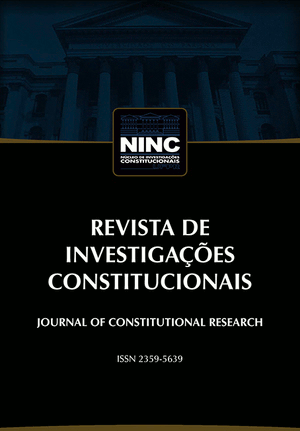Abstract
In Brazil, the discussion about the constitutionality of DNA databases, in the Recurso Extraordinário nº 973.837/MG, focuses mostly on criminal law and criminal procedure law (specially on the right to avoid self-incrimination), until now. In other countries, the implementation of this technology also considered the protection of privacy and of genetic data. In Germany, the right to informational self-determination is the constitutionality parameter to the storage of genetic profiles. Thus, this article aims to identify and analyze the criteria of proportionality used by the German Constitutional Court facing the use of genetic profiles in criminal prosecution and the right to informational self-determination and, as consequence, its implications to the Brazilian constitutionality analysis. The methodology adopted is qualitative exploratory research with compared case study between Brazil and Germany and bibliographic and documental sources. We conclude that DNA databases affect the right to informational self-determination and therefore the judicial decision that imposes DNA collection must ponder the public and private interest, considering elements of the particular case (negative prognostics). The absence of this analysis implicates in an unjustified restriction to the right of informational self-determination and consequently in the disproportionality and unconstitutionality of the measure.
Keywords:
DNA Databases; Informational self-determination; Bundesverfassungsgericht; Proportionality; Fundamental rights
